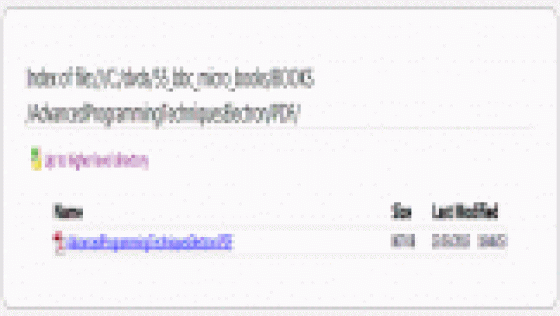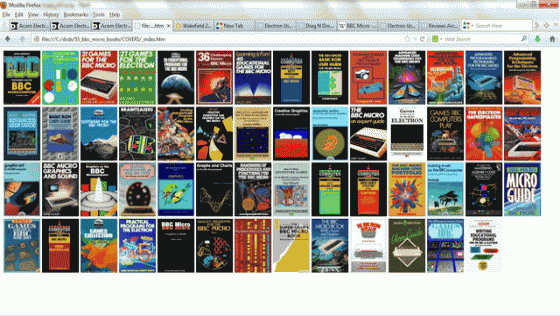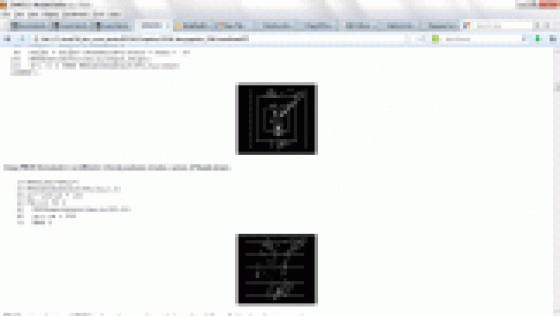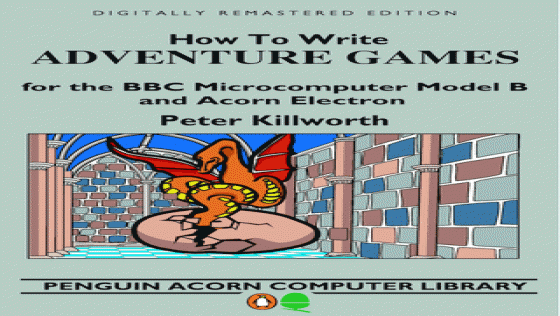
EUG PD
 5th September 2020
5th September 2020
Categories: Review: Software
Author: Dave E
Publisher: Drag 'N Drop
Machine: PC (Windows)
Published in EUG #75
Roaring Trade
There are few fans more enthusiastic about the Acorn 8- and 32-bit range than Chris Dewhurst. At one time a prolific contributor of arcade games, utilities, demos and deprotected professional releases to both 8BS and EUG, Chris then released a magnum opus in the guise of the Lutius Project. This was the "complete BBC Micro works from 1995-2005", released on CD and featuring hundreds of amazing programs - all written by Chris himself! - and articles which discussed the programming techniques employed in creating them. I reviewed it at the time (EUG #66) and enthused wildly about it. In spite of this, I don't believe he sold that many copies.
Some seven years later however, he is back again with a brand new CD - 55 BBC Micro Books - premiered at the Acorn RISC OS Wakefield Event of Saturday 20th April 2013. As someone who attended the event and picked up one of the copies of this CD, it was clear that he was doing a roaring trade; by lunchtime he had completely sold out! There are now more CDs available and they can be bought from Drag 'N Drop Productions (http://www.dragdrop.co.uk/) for just £12 postage inclusive.
BBC And Electron Books Galore!
Despite its title, 55 BBC Micro Books is a CD that features books for both the BBC and the Electron. You will all no doubt remember that there were hundreds of books produced for both machines, and a small number of these books have (like many games) been lost for decades. If you trawl eBay with any regularity you'll know the BBC and Electron books that come up for sale frequently (100 Programs For The Acorn Electron, Acorn Electron Advanced User Guide, The BBC Micro Book: Basic Sound And Graphics, etc) and the ones that come up once in a blue moon (Writing Educational Programs For The BBC And Electron, Essential Maths On The BBC And Electron Computers, etc). Quite evidently from its title, this CD is a compilation of 55 books in total; some of the titles you'll recognise, others you will probably never have heard of.
You use the CD (on a Windows PC at least) using your favourite Web Browser - and the opening 'index' page exclaims "These aren't just scans of tatty tomes packaged up in PDF format but proper, remastered and debugged editions which we believe to be a first anywhere on the Internet!" In fact, I would go much further than this because there's so much to say about this CD that even in one of my mammoth, detailed reviews of 55 BBC Micro Books, I fear I am only going to be able to scratch the surface.
Definitive Digital
To go straight to its claim of presenting what must surely be the definitive digital versions of each of these books, you firstly get each of them in five different formats. The most popular format is probably going to be the PDF format, which presents a version of the book which looks to all purposes identical to the print copy that left the publishers back in the Eighties, complete with all cover art, forewords, illustrations and screenshots. You could print this out (if minded) to create a brand new copy of the book of your choice and have a version which would be identical to the original in every way (apart from the size of the paper you decided to print it on). Alternatively you can scroll up and down the screen to view the chapters.
Additional Versions
There are also versions in Impression, EZWriter, PDF1 (A slightly superior version of PDF which replicates the actual fonts of the book rather than the nearest approximation) and Html. Impression, EZWriter and PDF1 are all rendered with the same tender loving care as the PDF versions. Alas, the Html versions look to be, for the most part, automatically generated versions of the same - with minimal styling. In some cases (the html version of 40 Educational Games For The BBC Micro for one), this means a rather simple white screen with the content of the book but with huge areas where clearly images are missing because the automatic process has not worked correctly, and the CD has been burned without testing it. This is the same drawback as on Chris' earlier Lutius Project CD. Now, in a way I don't want to complain about this because well, you do have four working versions which look gorgeous. But in another way, clearly Chris provides the html versions because a lot of users do prefer to just click a link and view the text in a web browser. The html on his CDs, probably to avoid any complications with RISC OS browsers, has none of the functionality of modern web sites. There is not even a Home Page button! Surely it wouldn't be too difficult to at least include the basics, and check the illustrations had come through ok, before releasing the CD?


On the left, an exact replica in PDF form on the book Graphito
On the right, an automatically-generated Html file of the text and graphics
To lead on from this too, even on the page which simply displays thumbnail images of the cover scans - which is only the second thing you see after booting the CD! - I found some thumbnails were not appearing. Where they should be was a space and a bit of investigation of the CD revealed that the link was looking for a image with a JPG extension whilst the file was saved in GIF format. Whilst I had the necessary knowledge to just change the extension in the link to the correct one, less computer-savvy users might not know what to do.
The Book You Want
Right, that's got the majority of the grumbles out of the way. To look at one or two of the books themselves, refer to the bottom of this review and some of the brief information about each book that we've put together. As you would imagine, almost all of them were reviewed in the Acorn press on their original release. Some, for example, the Basic Rom User Guide were almost considered a prerequisite for anyone attempting to make serious use of the underlying machine whilst others were just compilations of frankly not-very-good games (Virgin's Games For Your BBC Micro). There is also one book on the CD which requires a particular piece of software (Graphito) and is completely useless without it.
Earlier I mentioned that some books are rarer than others, and also that each book on this CD is, in document formats, immaculately presented. If you are looking for a particular book, can't find it on eBay and you would simply rather have it in digital rather than print form, then purchasing the CD - and getting a whopping extra 54 books in addition! - is easily going to justify the purchase. Many of these books simply aren't available anywhere else or, if they are, are only available in a vastly inferior format. But there is also another benefit to buying the CD - because the CD contains companion discs to each of them.
Companion Discs, But Not As We Know Them
Particularly in relation to titles like How To Write Adventure Games and the compilations of games that the CD includes, there is something almost magical about being able, instead of having to sit typing in reams and reams of lines, just loading a disc image into BeebEm and waiting for the program to appear. Except that on Chris' CD you unfortunately have to wait a long time for that program to appear.
To quote from the CD, "accompanying programs are included as DFS image(s) with an automatic menu system". So far, so good. However, "due to the traditional 31-files-per-disc limit of the BBC, programs are usually concatenated into a library file and the menu program will automatically extract the desired file. As this may take time, you are advised to SAVE a copy elsewhere once it is extracted, particularly if you feel you are going to make regular use of it." What this means in plain English is that, on each of Chris' companion discs, you get a menu and you choose the program you want to use. Let's bear in mind that this is usually a BASIC program of 10K or less.
The menu program then loads a file of every single program in the book into memory (this can be up to almost 800K), and grabs the tiny little bit of that file that you've said you wanted. It then needs to output that - so your companion disc needs to be write-enabled! - before it can actually run the program. So that tiny little 10K file which, if it were not stored in a compressed format, would open in half a second, now takes over a minute to appear. I don't know whether to be impressed - by Chris' amazing coding skills in putting together something that can automatically create running programs and a companion disc from the PDF text in a scanned book! - or whether to just curl up and gibber at the ridiculously long loading times that emerge as a result. If you just want to see each of the 36 Challenging Games For The BBC Micro, I'd venture to suggest that you want a companion disc a la the companion disc archive of Acorn Electron World, where you get a menu system and you tap a button and the same comes straight on, rather than waste 36 minutes of your life looking at a 'Please Wait - retrieving program' message between games!
Again, I don't want this to come across as aggressively negative. You can't get these games anywhere else at the moment so to be able to have them is fantastic (particularly as I have typed up hundreds of others myself over the years and just to know that someone else has taken up the gauntlet to do the rest is quite reassuring). However, as you might expect from reviews in the Acorn press of some of these books at the time, the quality of the programs is often pretty dire. To wait so long for one can feel rather disappointing, to say the least.
Verdict
Chris' previous CD - the Lutius Project - was released in 2006, and some of the books include the message 'Remastered 2006' under the copyright information. I don't know if this CD has really been seven years in the making but frankly, it's good enough that it wouldn't surprise me. What you have to appreciate is, despite the observations I've made above, you get a CD of 55 books that, even if you bought them second hand, would set you back far more than that (not to mention the space they would take up). If you ignore all of the bells and whistles - i.e. the html versions, the companion discs - you're getting versions of the books that ooze quality. Not only that, you're getting versions where obvious mistakes have already been corrected. Frankly, so what if a few images don't appear where they should and if the companion discs take a while to load?
I wouldn't think there were many people at the Wakefield show who were in any way disappointed with their purchase and if Chris decides to release more compilations of this quality, I will certainly again be first in the queue to buy them.
What Does 55 BBC Micro Books Include?
As a postscript to this review, here is a complete list of the books included on the CD and, occasionally, a few words on the books themselves. You will find information on all of the Electron books over in our Books section.
- 100 Programs for The BBC Microcomputer (Acornsoft)
-
100 Programs For The Acorn Electron (Prentice-Hall)
Clearly Prentice-Hall had a lot of faith in this book - the back cover doesn't even explain what it's about! Not reviewed back in the day at all. - 21 Games For The BBC Micro (Granada)
-
21 Games For The Electron (Granada)
A collection of Basic games aimed to encourage learning and experimentation with the language. A&B said "I could only rate five or six of them". - 35 Educational Programs For The BBC Micro (PCW/Century)
- 36 Challenging Games For The BBC Micro (Interface)
- 40 Educational Games For The BBC Micro (Granada)
- 60 Programs For The BBC Micro (Pan)
- The Advanced Basic ROM User Guide For The BBC Micro (Cambridge Microcomputer Centre)
- Advanced Graphics With The BBC Model B Microcomputer (Granada)
- Advanced Machine Code Techniques For The BBC Micro (Addison-Wesley)
- Advanced Programming For The BBC Micro (Addison-Wesley)
- Advanced Programming Techniques For The BBC Micro (Addison-Wesley)
-
Advanced Programming Techniques For The Electron (Addison-Wesley)
A wide-ranging book that introduces how to animate characters and write high-quality arcade games. Not reviewed back in the day but quite a good book. - Acorn Electron Advanced User Guide (Acornsoft/Adder)
-
Basic ROM User Guide (Acornsoft/Adder)
Delves deep into the Basic ROM User Guide, highly recommended by Acorn User as the most comprehensive book about the Basic ROM out there. - Software For The BBC Micro (PCW/Century)
-
Brainteasers For The BBC And Electron (Pheonix)
A collection of Basic programs featuring a diverse selection of puzzles, some better than others. A&B said many were not worth typing into the computer! - Creating Adventure Programs On The BBC Micro (Addison-Wesley)
- Creative Animation And Graphics On The BBC Micro (Collins)
-
Creative Assembler (Penguin)
Details how to write very fast-executing arcade games. Electron User called it an absolute godsend for "anyone struggling to write arcade games in machine code". - Creative Graphics For The BBC Microcomputer (Acornsoft)
- Essential Maths On The BBC And Electron Computers (Sunshine)
- The BBC Micro An Expert Guide (Granada)
-
Games And Other Programs For The Acorn Electron (Penguin)
A selection of twenty programs from the pages of Beebug and Elbug. Not reviewed back in the day. - Games BBC Computers Play (Addison-Wesley)
-
The Electron Gamesmaster (Granada)
A step-by-step tutorial in programming seven Electron games. Recommended by Electron User, although the games included are relatively basic. - Giant Book Of Games For Your BBC Micro (Fontana)
-
Graphic Art For The BBC Computer (Sunshine)
A book explaining Turtle Graphics (i.e. Logo-type languages). Not reviewed back in the day. - BBC Micro Graphics And Sound (Granada)
- Graphics On The BBC Microcomputer (Prentice-Hall)
- Graphics Programming On Your BBC Micro (Corgi)
-
Graphito (Addison-Wesley)
The User Guide to the utility by Addison-Wesley that allows very complex images to be flipped, rotated and transformed to your heart's content. - Graphs And Charts On The BBC Microcomputer (Acornsoft)
- Handbook Of Procedures And Functions For The BBC Micro (Grafton Books)
- How To Write Adventure Games (Penguin)
-
Instant Arcade Games For The BBC Micro (Pan)
Fairly rudimentary collection of example games that aim to encourage experimentation but are let down by being in Basic. - Invaluable Utilities For The Electron (Pan)
- The BBC Micro Machine Code Portfolio (Grafton Books)
- Making Music On The BBC Computer (Sunshine)
- Mastering Assembly Code (BBC Publications)
- BBC Micro Guide (Longman)
-
More Games For Your BBC Micro (Virgin Games)
A collection of Basic games of downright appalling quality. - BBC Micro Music Masterclass (Pan)
- Games Collection For The BBC Micro (PCW)
- Practical Programs For The Electron (Granada)
- BBC Micro Programs In Basic (Newnes Microcomputer Books)
- Quality Programs For The BBC Micro (Simon)
- The Second Book Of Listings (BBC Publications)
- The Super-User's BBC Micro Book (Addison-Wesley)
- The BBC Micro Book: Basic Sound And Graphics (Addison-Wesley)
- The BBC Micro Revealed (Interface)
- The Acorn Electron User Guide (Acorn Computers Ltd)
-
Games For Your BBC Micro (Virgin Games)
A collection of Basic games for the BBC Micro with quality ranging from the mediocre to the dreadful. - Writing Educational Programs For The BBC And Electron (Macmillian)












